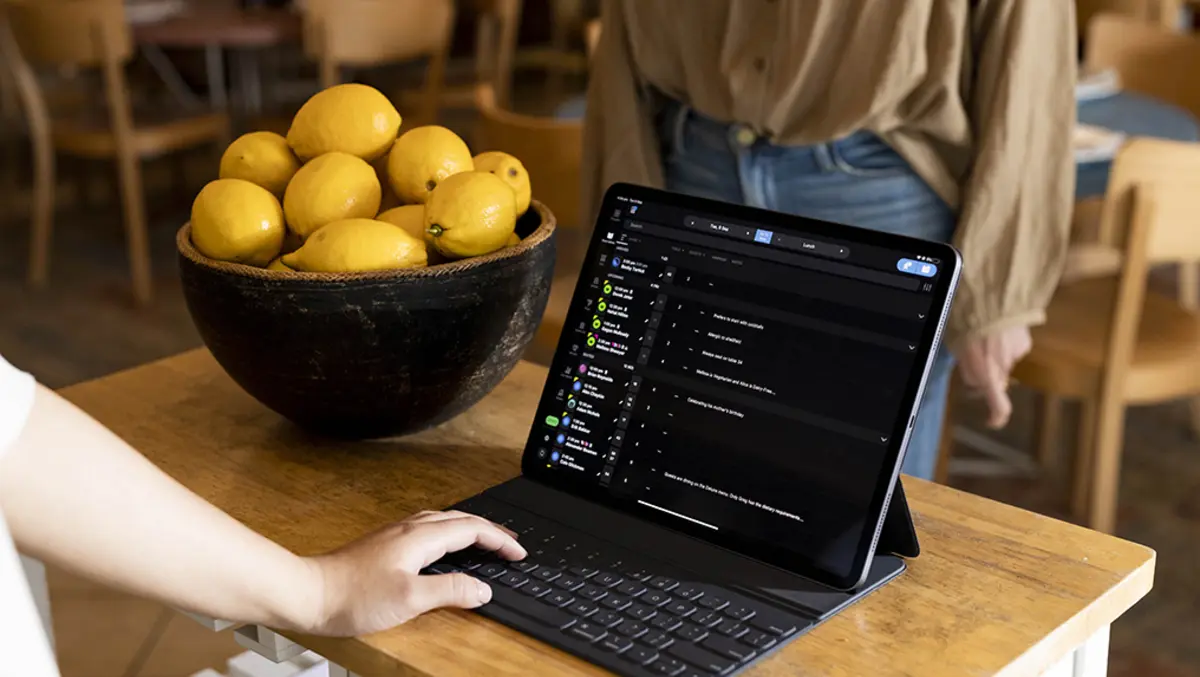
AI is ubiquitous, even in ‘traditional’ sectors and businesses
AI is ubiquitous. From developer message boards five years ago to generating headline news daily today. From the top tables of policy to water cooler conversations at offices, hype, scrutiny, and potential is high for AI - if not higher - than every other innovation since the invention of the internet. It's not just capturing the attention and investment of CTOs, CPOs and CIOs; it's capturing the attention and investment of non-technical decision makers at businesses and industries once considered 'traditional' and more immune to digital disruption than most.
Take hospitality, for example. According to research from SevenRooms, 85% of restaurants, bars and cafes across Australia have already embedded it into their operations. Today, restaurants aren't just hospitality businesses; they're tech companies, who specialise in the provision of food and experiences. But how are they using AI and automation? Why are they embracing these technologies? And how will it impact the industry in the years ahead?
AI adoption in a once 'traditional' sector
Hospitality is often seen as more 'traditional' than most industries. You can't automate the preparation or consumption of a meal, after all. However, technology adoption in our industry is as widespread as any other industry; and it's not just QR codes that became prevalent during the pandemic.
Today, AI is being used to drive operational efficiencies, cut costs and boost revenue and retention business-wide. SevenRooms' Restaurant Trends and Diner Expectations report sought to understand how restaurants, bars, cafes and hotel F&B venues are driving loyalty, enhancing guest experiences and overcoming challenges in the age of AI and automation.
The most common way restaurants are using AI is data analytics, with more than one in three (36%) venues using AI to convert their data into actionable strategies and insights. It's a universal position that data is critical in almost every business and sector, but accessing it was often easier said than done.
Today, however, leading restaurants, bars and cafes are using platforms like SevenRooms to automatically collect, analyse and utilise data, turning it into relationship-building, growth-generating strategies. For example, segmenting their customers based on preferences and habits, then targeting these segments with personalised, automated marketing campaigns that both boost retention and save time.
A further 36% are using AI to manage their inventory. For example, based on both historic data and external forecasting like weather, holidays or local events, venues can predict how much ingredients they'll need over a period of time. Or, if certain ingredients are running low or certain dishes are proving popular, AI can trigger a notification to automatically re-order to prevent stockouts.
A further 29% are using AI to devise menu items, for example, based on the produce they have on hand or to capitalise on food- and drink-related pop culture trends. This is especially beneficial as venues seek to cut down on wastage. Another 25% are using AI to inform dynamic pricing, which enables venues to automatically adjust their prices in real-time based on demand. For example, according to SevenRooms data, the most popular time for a reservation in Australia is 6PM on a Monday, which could imply that venues are using creative cost strategies to increase custom during traditionally slower times.
Other popular use cases are scheduling (26%) and staff hiring and training (25%), as venues seek to upskill and optimise their workforce in what is a transient sector, with fluctuating peaks and troughs on any given week. Clearly, venues aren't just deploying AI in isolated ways but across their entire operation. As economic pressures persist and guest demands increase, it's going to become an even more essential tool.
A bridge over troubled water
That's because few, if any, industries are more vulnerable to economic pressures than hospitality, with restaurants, bars and cafes entering insolvency at record rates in 2024. Consumers are being more cautious in their spending, and venues - especially in a market as competitive as Australia - are having to contend harder than ever for attention.
This year, according to our research, the top two priorities for venues are increasing revenue and cutting operating costs. Through AI and automation, venues can improve bottom-line profitability by reducing operational costs and enhancing internal efficiency while also stimulating top-line growth through personalised marketing, enhanced experiences and revenue-generating strategies.
As a former cafe owner in Sydney, the thought that I could've been building my business on an AI-powered foundation is a tantalising one. Being a technology leader today and seeing the impact it's having on venues like the one I used to run is empowering. The prospect and potential is immense.
As more vendors increase their R&D in AI and more GenAI companies are created, the already-high demand and adoption within the hospitality sector will increase. For all of the immense hype surrounding AI, we're already seeing the tangible ways it is enabling businesses - even those in more 'traditional' sectors like hospitality - to overcome challenges and pursue opportunities by creating experiences that boost retention and revenue.

